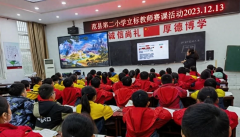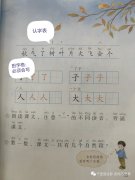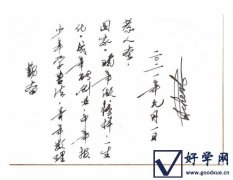人教精通版三年级unit4,3-6年级,下,4知识汇总,值得收藏
小英老师
更近孩子们都已经开始在网上上课,小编给大家准备了小学英语【人教精通版】小学英语下册3-6年级的所有单元知识汇总在一起,人教精通版本的同学们快来学习吧~
人教精通版下册三年级下册知识汇总
人教 精通版三年级下册unit 1 知识汇总
一、词汇
school 学校 classroom 教室 textbook 教科书,课本 storybook 故事书 Chinese book 语文书 English book 英语书 exercise book 练习册 notebook 笔记本 desk 书桌 chair 椅子
二、句子
1. Nice/ Glad to see you again! 再次见到你真高兴。
2. Lets go to school. 我们去学校吧。
3. I have a new textbook. 我有一个新课本。
4. Guess, what s in my bag? 猜猜,我的包里有什么?
5. It s an exercise book. 是一本练习册。
6. What s on the desk? 书桌上有什么?
三、句型结构
1. I have a/ an + 可数名词单数. “我有一个…。”
eg: I have a new schoolbag. 我有一个新书包。
2. — What s + 介词 + 地点? 询问某处有什么?
It s + A/ An + 可数名词单数. “是一个…。”
eg : — What s on the chair? 椅子上是什么?
It s a cat. 是一只猫。
3. Let s + 动词原形 + 其他。表示“让我们做…”
eg : Let s go home. 我们回家吧。
人教精通版下册三年级unit 2 知识汇总
一、词汇
one 一 two 二 three 三 four 四 five 五 six 六
seven 七 eight 八 nine 九 ten 十 eleven 十一
twelve 十二
二、句子
1. I’m Mike. What’s your name? 我是迈克。你叫什么名字?
2. My names Ann. 我叫安。
3. Im in Class Four, Grade Three. 我在三年级四班。
4. What about you? 你怎么样?
5. How old are you? 你几岁了?
6. I m eight. 我八岁了。
7. What time is it? 几点了?
8. It’ s nine o’ clock. 九点了。
9. Good night. 晚安。
三、句型结构
1. — What s your name? 询问对方的名字。
My name is ... 我叫…。
eg: What s your name? 你叫什么名字?
My name is Li Ting. 我叫李婷。
2. What about ...? 询问某物/人怎么样?
eg : I have a new schoolbag. What about you? 我有一个新书包。你呢?
Me too. 我也是。
3. — How old are you? 询问对方的年龄。
I am (I m) + 基数词 (+ years old).
eg : How old are you? 你几岁了?
I m nine (years old). 我九岁了。
4. — What time is it? 几点了?
It’ s + 基数词 + o’ clock. …点了。
eg : What time is it? 几点了?
It’ s eight o’ clock. 八点了。
人教 精通版下册三 年级 unit 3 知识汇总
一、词汇
father (dad) 爸爸 mother (mum) 妈妈 brother 兄,弟 sister 姐,妹 daughter 女儿 son 儿子 grandfather (grandpa) (外)祖父 grandmother (grandma) (外)祖母 uncle 叔(舅、姨、姑)父
aunt 婶(舅,姨、姑)母
二、句子
1. This is my father. 这是我的爸爸。
2.— Who is this? 这个是谁?
This is my grandma. 这是我奶奶
3. — Who is that? 那个是谁?
That s my grandpa. 那是我爷爷。
4. Who s that man? 那个男的是谁?
That s my uncle. 那是我舅舅。
三、句型结构
1. — Who is this? 询问离自己较近的人是谁。
This is ... 这是…。
eg: Who is this? 这是谁?
This is my mother. 这是我妈妈。
2. — Who is that? 询问离自己较远的人是谁。
That s ... 那是…。
eg : Who is that? 那是谁?
That s my uncle. 那是我叔叔。
3. This is ... 用于向另外一个人介绍某人。
Eg: This is my friend, Jack. 这是我的朋友,杰克。
人教精通版下册三年级unit 4知识汇总
人教精通版下册三年级unit 5知识汇总
人教精通版下册三年级unit 6 知识汇总
人教精通版三年级unit4、5、6知识汇总
人教精通版下册四年级知识汇总
人教 精通版四年级下册unit 1 知识汇总
一、词汇
home 家 bedroom 卧室 bed 床 desk 课桌 chair 椅子 living room 起居室 TV 电视 sofa 沙发 armchair 单人沙发;扶手椅 ball 球 kite 风筝 kitchen 厨房 fridge 冰箱 table 桌子 study 书房 computer 电脑 picture 图片;照片 bathroom 浴室;卫生间 DVD player DVD 播放机 clock 时钟
二、句子
1. Welcome to my new home! 欢迎来到我的新家。
2. Look at my bedroom. 看我的卧室。
3. There is a new bed. 那有一个新床。
4. There s a new desk and a new chair. 那有一个新的书桌和一把新椅子。
5. There are two sofas and four armchairs. 那有两张沙发和四个扶手椅。
6. Here s a new table. 这有一张新餐桌。
7. What s in the study? 书房里有什么?
8. This is the living room. 这是起居室。
9. That s the bathroom.那是卫生间。
三、句型结构
1. There is + some/ a/ an + 不可数名词/ 可数名词单数. 表达某处有某物。
eg: There is some water in the bottle. 瓶子里有一些水。
2. There are + some/ 基数词(twenty, one hundred...)... + 可数名词复数. 表达某处有某物。
eg :There are ten birds in the tree. 树上有十只鸟。
3. — What s + 介词 + 地点? 询问某处有什么。
There be + 名词.
eg : What s in the kitchen? 厨房有什么?
There is a new fridge. 有一个新冰箱。
人教精通版下册四年级unit 2 知识汇总
一、词汇
Twenty-one 二十一 twenty-two二十二 twenty-three二十三 twenty-four二十四 twenty-five 二十五 twenty-six二十六 twenty-seven 二十七 twenty-eight 二十八 twenty-nine 二十九 eleven 十一 twelve 十二 thirty 三十 forty 四十 boy 男孩 girl 女孩 fifty 五十 sixty 六十 student 学生 school 学校 sy 七十 eighty 八十 bag 包 book 书 ninety 九十 one hundred 一百 pen 钢笔 pencil 铅笔
二、句子
1. Good afternoon! 下午好!
2. This is Mr Gao, our new PE teacher. 这是高老师,我们的新体育老师。
3. How many students are there in your class? 你们班里有多少学生?
4. Twenty-nine. 二十九个。
5. There are forty. 有四十个。
6. There are sixty teachers in our school. 我们学校有六十个老师。
7. How many bags do you have? 你/ 你们有多少个书包?
8. We have sy bags. 我们有70个书包。
三、句型结构
1. — How many + 可数名词复数 + are there + 介词短语? 询问在某处某物的数量。
There are + 基数词 twenty, one hundred....
eg: — How many people are there in your family? 你们家有几口人?
There are five./ Five. 五口人。
2. — How many + 可数名词复数 + do you have? 询问对方拥有某物的数量。
I have + 基数词 ( twenty, one hundred...) + 可数名词复数.
eg : How many oranges do you have? 你有多少个桔子?
I have twelve oranges. 我有十二个桔子。
人教 精通版下册四 年级 unit 3 知识汇总
一、词汇
maths数学 PE 体育 Chinese 中文;汉语;语文 English 英语 music 音乐 art 美术 subject 科目;学科 science 科学 lesson 课 drama 戏剧 listen 听 do 做 speak 说 listen and do 听听做做 speak and sing 说说唱唱 play and act 玩玩演演 sing 唱歌 play 玩 act 表演
二、句子
1. — How many lessons do you have in the morning? 你们早上有几节课?
We have four. 我们有四节课。
2. — What are they? 它们是什么?
3. — Do you like music? 你喜欢音乐吗?
No, I don t. 不,我不喜欢。
4. — What subject do you like best? 你更喜欢什么科目?
I like art best. 我更喜欢美术课。
5. — Do you study science? 你们学习科学吗?
Yes, we do. 是的,我们学科学。
三、句型结构
1. — How many (学科名) lessons + do you have + 时间介词短语? 询问对方在某个时间上几节课。
I/ We have + 基数词 (one, twenty, one hundred...).
eg : How many science lessons do you have in a week? 你们一周上几节科学课?
We have three. 我们上三节。
2. — Do you like + 学科名? 询问对方是否喜欢某个学科。
Yes, I do./ No, I don t.
eg : Do you like art? 你喜欢美术吗?
Yes, I do. 是的,我喜欢。
3. What do you do in a/ an + 学科 + class? 询问对方在某个课上做什么?
eg: — What do you do in a maths class? 你们在数学课上做什么?
We count and write. 我们算一算写一写。
人教精通版下册四年级unit 4知识汇总
人教精通版下册四年级unit 5知识汇总
人教精通版下册四年级unit 6 知识汇总
人教精通版四年级unit4、5、6知识汇总
人教精通版下册五年级知识汇总
人教 精通版五年级下册unit 1 知识汇总
一、词汇
library 图书馆 borrow (向某人、从某人)借 borrow books 借书 meeting room 会议室 have a meeting 开会 welcome 欢迎 meet 相遇、开会 our 我们的 English lesson 英语课 language lab 语言实验室 science lesson 科学课 science lab 科学实验室 we 我们 have 有 all 所有;全部 like 喜欢 very much 非常;很 art club 美术 (艺术)俱乐部 paint a picture (用颜料)绘画 music club 音乐俱乐部 play the piano 弹钢琴 many 许多 way 路;道路 please 请 also 也;同样
二、句子
1. Welcome to our school! 欢迎来到我们的学校。
2. We often borrow books from the library. 我们经常从图书馆借书。
3. Well show you around our school. 我们会带你参观我们的学校。
4. This way, please. 这边请。
5. This is our science lab. 这是我们的科学实验室。
6. Do you often come to the library? 你经常来图书馆吗?
7. How many English lessons do you have in a week? 你们一周有几节英语课?
8. How many science lessons do you have in the science lab? 你们在科学俱乐部有几节科学课?
9. We have one science lesson in the science lab.我们在科学俱乐部有一节科学课。
10. How many music lessons do you have in a week? 你们一周上几节音乐课?
11. We often draw pictures in our art club. 我们经常在绘画俱乐部画画。
12. I like singing. 我喜欢唱歌。
三、句型结构
1. This is + 地点. 介绍地点的句型。
eg: This is our meeting room. 这是我们的会议室。
2. 主语 + often + 动词原形(动词第三人称单数)+ 其他 . 表示某人经常做某事。
eg :We often go swimming on Sundays. 我们周日经常去游泳。
3. Do you like + 学科 ( maths, music... ) 询问对方是否喜欢某个学科。
eg : Do you like music? 你喜欢音乐吗?
Yes, I do. I like it very much. 是的,我非常喜欢。
3. How many + 课程(复数)+ do you have + 其他(in a week,in a day) 询问对方在某段时间有多少节某个学科的课。
eg: — How many maths lessons do you have in a week?
I have eight.
4. I like + 动词-ing形式. 表达某人喜欢做某事。
eg: I like swimming. 我喜欢游泳。
人教精通版下册五年级unit 2 知识汇总
一、词汇
toy train 玩具火车 toy plane 玩具飞机 toy ship 玩具轮船 toy boat 玩具小船 can 能 help 帮助 want 想;想要 toy 玩具 train 火车 plane 飞机 ship 轮船 boat 小船 motorbike 摩托车 jeep 吉普车 coach 长途旅游车 buy 买 bike 自行车 car 小汽车 bus 公共汽车 taxi 出租车 trousers 裤子;长裤 short pants 短裤 try 试 coat 大衣 clothes 衣服
二、句子
1. Can I have a toy train? 我可以拥有一个玩具火车吗?
2. Can I help you? 我可以帮助你吗?
3. I want a toy train. 我想要一个玩具火车。
4. How much is it? 多少钱?
5. It s fifty-six yuan. 五十六元钱。
6. What can I do for you? 我能为你做点什么?
7. I want to buy a motorbike. 我想买一个摩托车。
8. How about this one? 这个怎么样?
9. We ll take it.我们要它了。
10. It looks nice. 它看起来很好。
11. I want a pair of short pants, please. 我想要一条短裤。
12. Can I try them on? 我可以试试它们吗?
13.They are too big for me. 他们对我来说太大了。
14. Would you please show me that pair of short pants? 请帮我拿另一条短裤可以吗?
15. How much are these short pants? 这些短裤多少钱?
16. They are sixty-five yuan. 它们五十六元。
三、句型结构
1. How much is/ are ...? 询问物品的价格。
eg: How much are these eggs? 这些鸡蛋多少钱?
2. How about ... 用于征求对方的意见或看法。
eg :How about your new toy? 你的新玩具怎么样?
3. What can I do for you? 询问对方需要什么帮助。
eg : What can I do for you? 我能为你做点什么?
I want to buy a present for my mother. 我想给妈妈买一个礼物。
3. I want to + 动词原形 + 其他. 表达我想做某事。
eg: I want to go out for a walk. 我想出去散散步。
4. Would you + 动词原形 + 其他? 请求对方做某事。
eg: Would you show me your new toy? 你可以让我看一下你的新玩具吗?
人教 精通版下册五 年级 unit 3 知识汇总
一、词汇
ask 问 answer 回答 eat 吃 make 制造;做 think 想 late 晚;迟到 class 班 question 问题 actively 积极地 quiet 安静的 make noise 喧闹;制造噪音 keep your room clean 保持房间清洁 do housework 做家务 read in bed 在床上看书 go home late 晚回家 go home 回家 get up 起床 go to bed 去睡觉 help old people 帮助老人 keep off the grass 不要进入草地 take good care of young children 照看好儿童 play on the street 在街道上玩耍 pick flowers 摘花 litter 乱丢杂物 wait 等待 take 拿;乘坐 young 年轻的 child (children) 孩子(复数) people 人;人们
二、句子
1.He knows the school rules very well.他非常了解学校规则。
2.Dont be late for school. 上学不要迟到。
3.Dont make noise in class. 上课不要喧闹。
4. Listen to the teacher carefully. 认真听老师讲课。
5. Hand in your homework on time. 按时交作业。
6. You should help to do housework. 你应该帮忙做家务。
7. You shouldn t watch TV too often. 你不应该看电视太频繁。
8. You should go to bed early. 你应该早睡。
9. You shouldn t read in bed. 你不应该在床上看书。
10. You must wait for the green light. 你必须等绿灯。
11. You mustn t cross the street when the light is red. 红灯亮的时候禁止过马路。
三、句型结构
eg: Show me your father s photo. 让我看看爸的照片。
2. Don t + 动词原形 + 其他. 用于告诫别人不要做某事。
eg :Don t smoke in public. 公共场合禁止吸烟。
3. You + should + 动词原形 + 其他. 建议某人应该做某事。
eg :You should drink more water. 你应该多喝水。
4. You + shouldn t + 动词原形 + 其他. 建议某人不应该做某事。
eg: You shouldn t run a red light. 你不应该闯红灯。
5. You + must + 动词原形 + 其他. 命令或强烈建议某人做某事。
eg :You must wait at a red light. 红灯亮的时候你必须等待。
6. You + mustn t + 动词原形 + 其他. 禁止某人做某事。
eg: You mustn t eat in class. 禁止在课堂上吃东西。
人教精通版下册五年级unit 4 知识汇总
人教精通版下册五年级unit 5知识汇总
人教精通版下册五年级unit 6 知识汇总
人教精通版五年级unit4、5、6知识汇总
人教精通版下册六年级知识汇总
人教 精通版六年级下册unit 1 知识汇总
一、词汇
go to the beach 去沙滩 enjoy sunbathing 享受日光浴 enjoy the moon and stars 看月亮和星星 stay at home 待在家里 have a party 聚会 enjoy Spring Festival 过春节 sun 太阳 moon 月亮 star 星星 at night 在晚上 at home 在家里 listen to English 听英语 speak English 讲英语 read English 读英语 write English 写英语 talk in English 用英语交流 play in English 用英语玩游戏 learn 学;学习;学到 a lot of 很多 word 单词;词 blackboard 黑板 say 说 do tasks 做任务 have an English party 举办英语聚会 act in drama 表演戏剧 learn from each other 互相学习 subject 学科 but 但是 yesterday 昨天 why 为什么 use 用
二、句子
1. What did you do during your holidays? 你在假期期间做什么了?
2. I went to Sanya with my parents. 我跟父母一起去三亚了。
3. How did you get there? 你们怎么去的?
4. We went there by plane. 我们乘飞机去的。
5. Did you have a good time? 你玩得开心吗?
6. We enjoyed sunbathing during the day, and we enjoyed the moon and stars at night. 我们白天享受日光浴,晚上欣赏月亮和星星。
7. We are very interested in English. 我们对英语很感兴趣。
8. We have learned a lot of English words. 我们已经学习了很多英语单词。
9. How did you learn English? 你怎么学习英语的?
10. We learned English by doing things. 我们通过做事情学习英语。
11. We learned from each other. 我们互相学习。
三、句型结构
1. — What did you do + 过去时间? 介绍地点的句型。
I/ We + 动词过去式 (+其他).
eg: — What did you do last Sunday? 你上周干嘛了?
I went to visit my grandparents.
2. 主语 + be (am, is, are) interested in + 名词/ 代词宾格/ 动词 -ing 形式 (+其他) . 表示某人对某事很感兴趣。
eg :I am very interested in maths. 我对数学很感兴趣。
3. 主语 + have/ has + 动词的过去分词 + 其他. 表达某人已经做过某事。
eg :We have visited a lot of places in China. 我们已经游览过中国的很多地方。
3. How did you learn + 语言? 询问某人学习某种语言的方式。
eg: — How did you learn Chinese? 你怎么学习中文的?
I learned Chinese by talking with my Chinese friends. 我通过跟我的中国朋友交流学习中文。
4. 主语 + learn/ learns/ learned from + 某人. 表示向某人学习。
Eg: I learned a lot from my parents. 我从父母那里学到了很多。
人教精通版下册六年级unit 2 知识汇总
一、词汇
in front of 在…前面 bookshop 书店 behind 在…后面 clothes shop 服装店 supermarket 超市 across the road 在马路对面 river 河流 near 在…附近 beside 在…旁边 between 在…中间 healthy (food) 健康的(食品) vegetable 蔬菜 go down this street 顺着这条街走 turn right at the traffic lights 交通灯处右转 cross the street 穿过马路 street 大街;街道 turn right/ left 右转/ 左转 on the right/ left 在右边/ 在左边 minute 分钟 City Library 城市图书馆 post office 邮局 by bike/ bus 骑自行车/ 乘坐公共汽车 by subway 乘地铁 on foot 步行 half an hour 半小时 city 城市
二、句子
1. There is a park near my home. 我家附近有一个公园。
2. There is a bank in front of my home. 我家前面有一个银行。
3. Where is the bookshop? 书店在哪?
4. Go down the street. 顺着这条街走。
5. The bookshop is on the left. 书店在左边。
6. How can I get to the City Library? 我们怎么去城市图书馆?
7. You can get there by No. 6 bus. 你可以乘坐6路公交车去那儿。
9. It s about half an hour by bus. 乘公交车大约半个小时。
10. You can get off the bus at the third stop, and then you ll find a supermarket on your right. 你可以在第三站下车,你会发现在你的右边有一个超市。
11. How long does it take to go there on foot? 步行去那里要多长时间?
12. Where are you going? 你要去哪?
三、句型结构
1. — Where is + 地点? 询问地点的句型。
Go down + 街道/ 马路.
eg: — Where is the supermarket? 超市在哪?
Go down the street.
2. How can + 主语 + get (to) + 地点? 询问如何到达某地。
eg : How can I get to the library? 我怎么到达图书馆?
You can get there on foot. 你可以步行过去。
3. There is/ are + 某人/ 某物 + 地点. 表达某处有某物。
eg :There is a river in front of my house. 我家门前有一条河。
人教 精通版下册六 年级 unit 3 知识汇总
一、词汇
Shanghai 上海 Xi an 西安 Wuhan 武汉 by plane 乘飞机 by train 乘火车 by ship 乘轮船 travel 旅行 know 知道 hear 听见 lake 湖;湖泊 the Ming Tombs 明十三陵 the Temple of Heaven 天坛 the Summer Palace 颐和园 the Forbidden City 紫禁城 Beihai Park 北海公园 tomorrow 明天 visit 参观 the Great Wall 长城 them 他们;她们;它们(they的宾格) Tower Bridge 伦敦塔桥 Big Ben 大本钟 Niagara Falls 尼亚加拉瀑布 CN Tower 加拿大国家电视塔 Sydney Opera House 悉尼歌剧院 Disneyland 迪士尼乐园 see 看见 favourite 更喜欢的 place 位置;地点
二、句子
1. This is my familys travel plan. 这是我家人的旅行计划。
2. We are going to travel around China during the summer holidays. 我们打算在暑假期间环游中国。
3. We are going to Hangzhou by plane. 我们打算乘飞机去杭州。
4. We are going to visit the West Lake there. 我们打算去游览西湖。
5. It s the longest wall in the world. 它是世界上更长的一道墙。
7. Where are we going today? 我们今天要去哪里?
9. Is the Great Wall far from here? 长城离这儿远吗?
10. It s in the north of Beijing. 它在北京的北部。
11. When are we going to the Summer Palace? 我们什么时候去颐和园?
12. We can learn a lot about the history of China. 关于中国历史我们可以学习很多。
13. Would you like to go to the Disneyland? 你想去迪士尼乐园吗?
14. I want to see all my favourite places. 我想去游览所有我更喜欢的地方。
三、句型结构
1. 主语 + be going to + 动词原形 + 其他. 表达某人打算做某事。
eg: We are going to go shopping. 我们打算去购物。
eg : When are we going to visit the West Lake? 我们打算什么时间游览西湖?
Next Friday. 下周五。
3. Would you like to + 动词原形 (+ 其他) 询问对方是否想做某事?
eg : Would you like to go to the party? 你想去那个聚会吗?
Yes, of course. 是的,当然。
本文相关词条概念解析:
汇总
汇总,汉语词语,意思是把各种材料或情况汇集到一起。




